How Often Should You Water Succulents?
Are you new to the fun, wacky world of these fleshy beauties? Have you ever wondered how to water succulents?
Oh, succulents; how their popularity marches on and on! They come in a wide range of sizes, forms, colors, and shapes, making them appealing to almost everyone.
Stick around for the answer and other things good to know. I’ll answer it right now in a nutshell: it depends. Not to be vague, but there are a lot of variables involved, which I’ll point out down below.
This post (plus the video towards the end) serves as a guide and will give you things to think about when determining how to water your succulents, whether planted in the ground, in pots or growing as houseplants.
Let me start this party off by defining what I mean by succulents. All cacti are succulent plants, but this isn’t about cacti. This is about those fleshy little beauties you see in pots, dish gardens, terrariums, kissing balls, wreaths, and living walls, as well as growing in the garden in more temperate climates.
What I’ve Learned About Growing Succulents
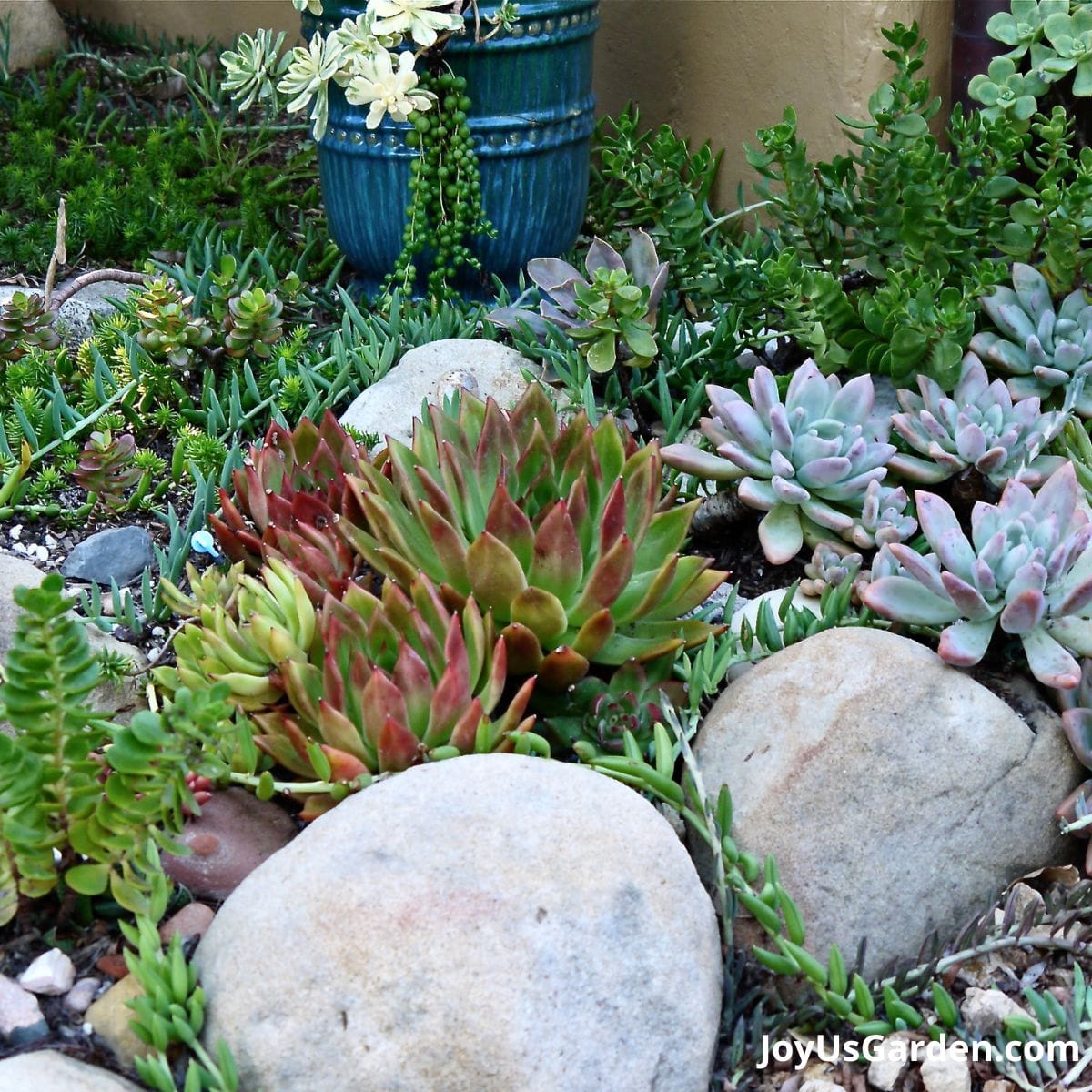
I for one love succulents and have been growing them for years. I’ve grown them as both indoor plants and outdoor plants in very different climate zones.
My first run-in with a succulent was as a kid on our farmette in Litchfield County, CT. We had a Jade Plant in a huge container that had reached 4′ tall and grew in the greenhouse off of our dining room. How exotic I thought Jade Plants were back then!
I grew a few succulents on my deck in San Francisco. They were coming on the mainstream market as my 20 years of living in the City by the Bay were wrapping up. My passion for them really sparked when I moved about 300 miles south.
I lived in Santa Barbara for 10 years and grew heaps of succulents which were planted in the garden and also in containers. The coast of Southern California (San Diego right up into the Central Coast) is the ideal climate for growing succulents outdoors. The fog tends to linger until mid-morning, and the temps are mild year-round.
This is my front garden in Santa Babara as well as my side garden (these are very old posts!). My back garden was full of succulents too but I never got around to doing a post and video about it.
I now live in Tucson, Arizona, far from the ideal climate for growing fleshy succulents. Nevertheless, they’re sold in almost every nursery and in stores like Whole Foods, Trader Joe’s, etc. The Sonoran Desert is hotter in summer and colder in the winter than the California coast.
Not to mention the fact that the omnipresent intense summer sun here will fry them. This applies to other places like Phoenix, Palm Springs, and Las Vegas. As you can imagine, succulents need watering more often here. On to the good stuff!
Are you curious about succulents and sun? Be sure to check out How Much Sun Do Succulents Need.
A Guide to Watering Succulents
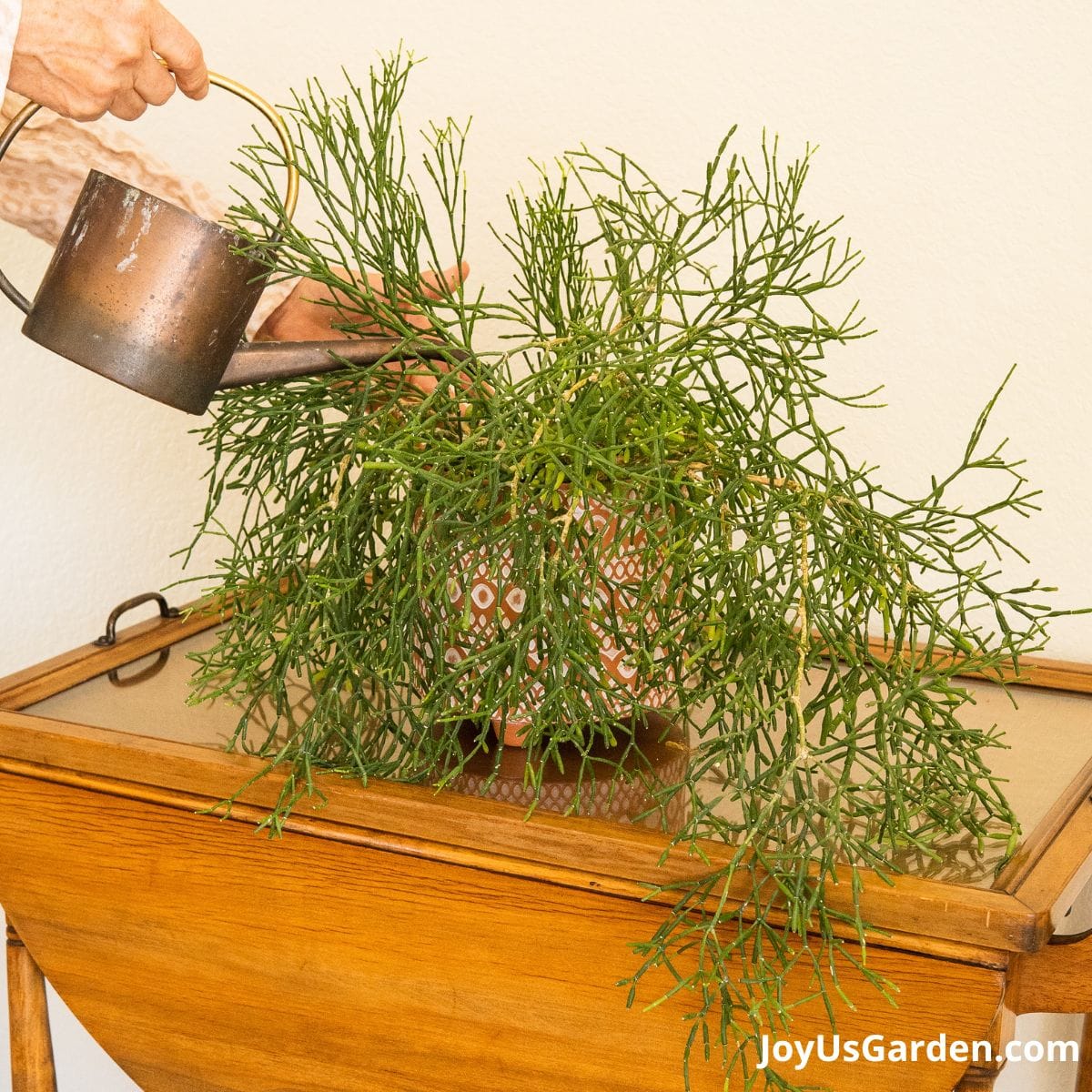
When To Water Succulents
We get the question “how often to water succulents?” quite often. Like with all plants, I can’t give you a specific schedule because there are so many variables involved.
In general, you want to water them when the soil is almost or all the way dry. Succulent leaves are plump because they store water as well as in their stems. You don’t want to water them too often because this will lead to root rot, or as I call it, “mushing out”.
Where to Water Succulents
This may seem an odd question, but we’ve gotten it a few times. I water the soil all around the pot (not just on 1 side) and avoid getting the leaves wet. The epiphytic cacti like Christmas Cactus or Dancing Bones are different – they appreciate a spray or mist.
How to Water Succulents Outdoors
You might want to read this post I did not too long ago about how much sun succulents need. How much water succulents need goes hand in hand with how much sun (and heat) they’re getting. I’ll share my experiences and you can adjust accordingly to your climate/growing conditions.
Along the California Coast
The majority of my succulent growing experience was garnered in Santa Barbara. The summer temps average around 75F and in winter rarely dip below 40F. A very suitable climate for growing succulents in the ground as well as in pots.
The succulents growing in my garden were on dip which ran once every 8-10 days in the warmer months. I watered the ones in containers approximately every 7 days. The fog lessened the need for constant watering and succulents thrived here.
In winter, the frequency depended on the rain situation. If we were getting rain on a regular basis (every 3-4 weeks) I’d turn the drip off.
I started dabbling in the world of succulent gardening in San Francisco (prior to moving to Santa Barbara) when I bought a few of them at the UC Davis Botanic Garden. Succulents weren’t readily available then like they are now.
They grew on my east-facing deck in containers and I watered them every 2-4 weeks depending on the intensity of the fog. It’s easy to overwater succulents in a climate like this!
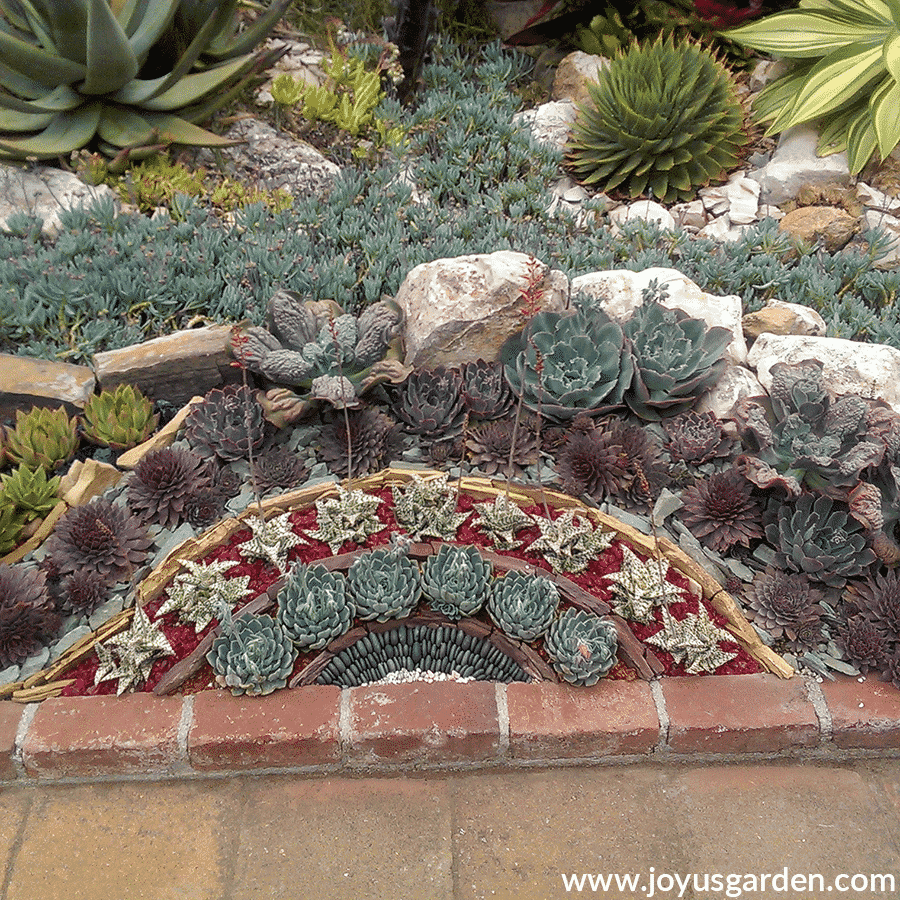
In the Sonoran Desert
This is a much tougher climate for growing succulents than coastal Southern California. Here I grow all mine in containers in bright shade sheltered from the strong desert sun. In summer, I water those in larger pots approximately every 7 days and the ones in smaller pots every 5 days. My hanging succulents get watered twice a week.
In the spring and late fall (before and after the intense heat) the watering frequency is about every 10 days. In the winter months I back the watering off to every 2 weeks; more or less depending on the temps.
How to Water Succulents Indoors
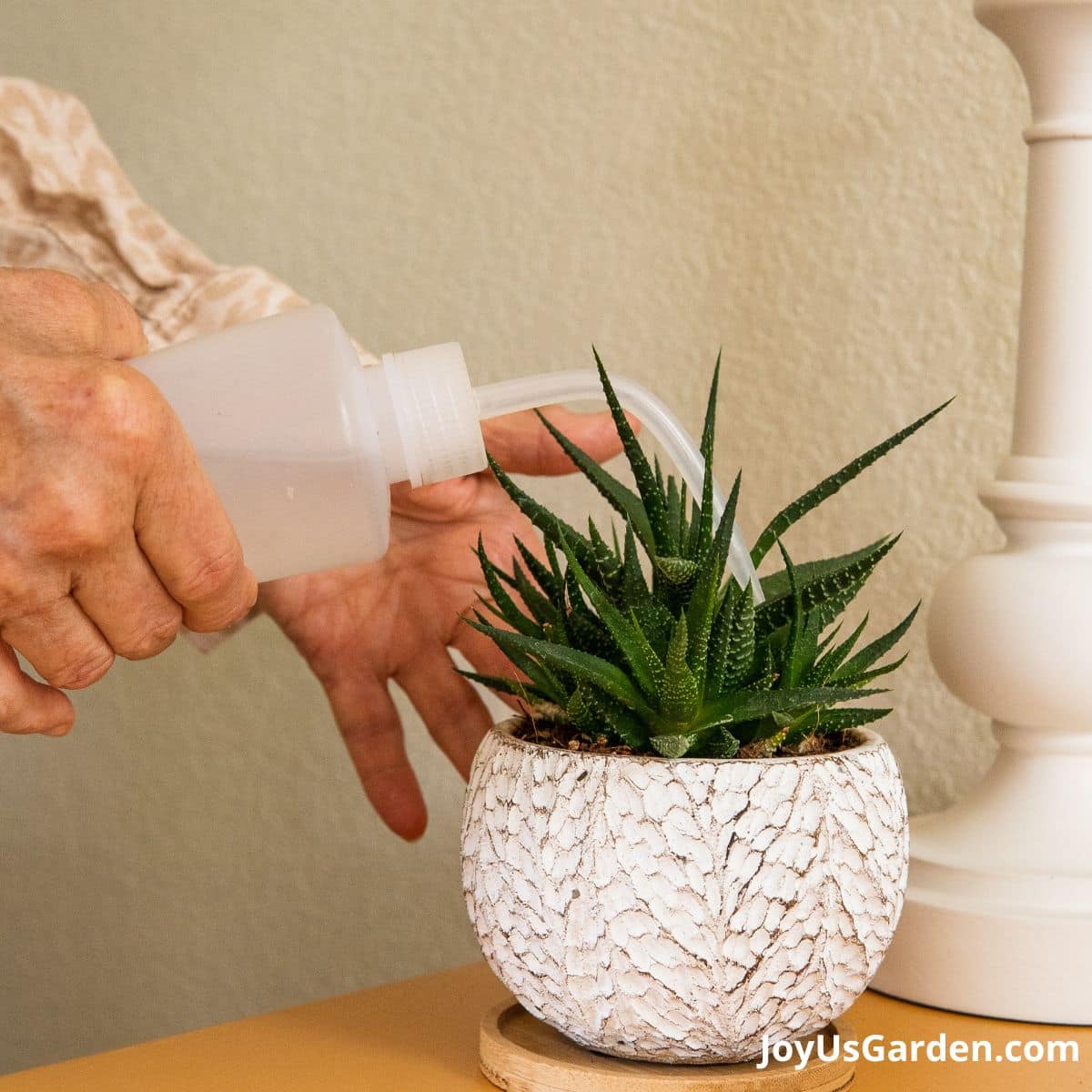
Most succulents need high light (but out of the direct, hot sun) to do well indoors. Some do better indoors than others. That being said, how often you water them depends on how much light they’re getting, the composition of the soil mix, and how warm your house temperatures are.
My watering schedule for my succulents growing indoors is about every 2 weeks in the summer months. In the cooler, darker winter months it’s every 3 weeks. They get watered less frequently watering than my outdoor succulents; and rightfully so.
My epiphytes, the Christmas Cactus, Dancing Bones, and Epiphyllums, get watered every week in the summer and every other week in the winter. These get a spray down in the kitchen sink because they’re native to the tropics and subtropics. For my other succulents more adapted to dry climates, I don’t mist or use a spray bottle.
When it comes to watering succulents indoors, know that less water is more. As a general guideline, it’ll be every 1-2 weeks in the warmers months and every 3-4 weeks in winter.
You want to give the soil a thorough watering, let that excess water flow out of the drainage holes, and let the soil dry out before watering again.
Be sure to scroll to the bottom to find the 2 categories (factors and general tips) that will help you factor in how often you’ll need to water your succulents.
We’ve done a series on succulent care indoors. Be sure to check out How To Water Succulents Indoors and Indoor Succulent Care Basics.
Overwatering / Underwatering
Just like with all plants (especially houseplants), there’s a line between too much water and too little water. If the succulent leaves and stems are yellowed, shriveled, and look dried, then your succulent is under-watered. If the leaves and stems are mushy and brown (they can also be yellowish), then it’s overwatered.
Don’t worry about the occasional lower leaf drying out on succulents. It’s normal and part of their growing process.
Succulent Soil Mix
This is important to include because you don’t want the soil mix to be too heavy. Succulents don’t like wet soil, especially those that are growing indoors. The leaves, stems, and roots store water and are subject to root rot if kept wet for too long.
The mix needs to dry out in between waterings. It needs to be a gritty mix that provides excellent drainage. This is especially true if the planters they’re growing in have no drainage holes.
I don’t recommend growing succulents in regular potting soil or planting mix. It holds too much moisture and has a good chance of staying too wet. I’ve found that some of the commercial succulent mixes can also be too heavy for indoor succulents. You may need to add an amendment or 2 to lighten the mix.
Here are the ingredients to make your mix fast draining and well-aerated: pumice, coco chips, perlite, pebbles, gravel, and coarse sand.
When I was prepping my outdoor beds in Santa Barbara, I had 6 yards of a local sandy loam delivered. We worked this into the existing soil to make it more suitable for planting and growing succulents.
Much more on Succulent Soil here. This is my favorite DIY Succulent & Cactus Mix if you’re into making your own.
Watering Succulents After Repotting
I water my succulents a few days before repotting them. After repotting, I let them settle in for 5-7 days before watering. From then on, I resume watering as usual.
Interested in more on repotting succulents? Check out our Guide to Repotting Succulents.
Watering Succulent Pups
I’ll let the newly planted succulent babies settle in for 1-5 days (how long depends on the type and size of the succulent) before watering. I water those new plants more often than an established plant until the roots are grown and formed.
Here’s a post dedicated to Succulent Propagation that you’ll find helpful.
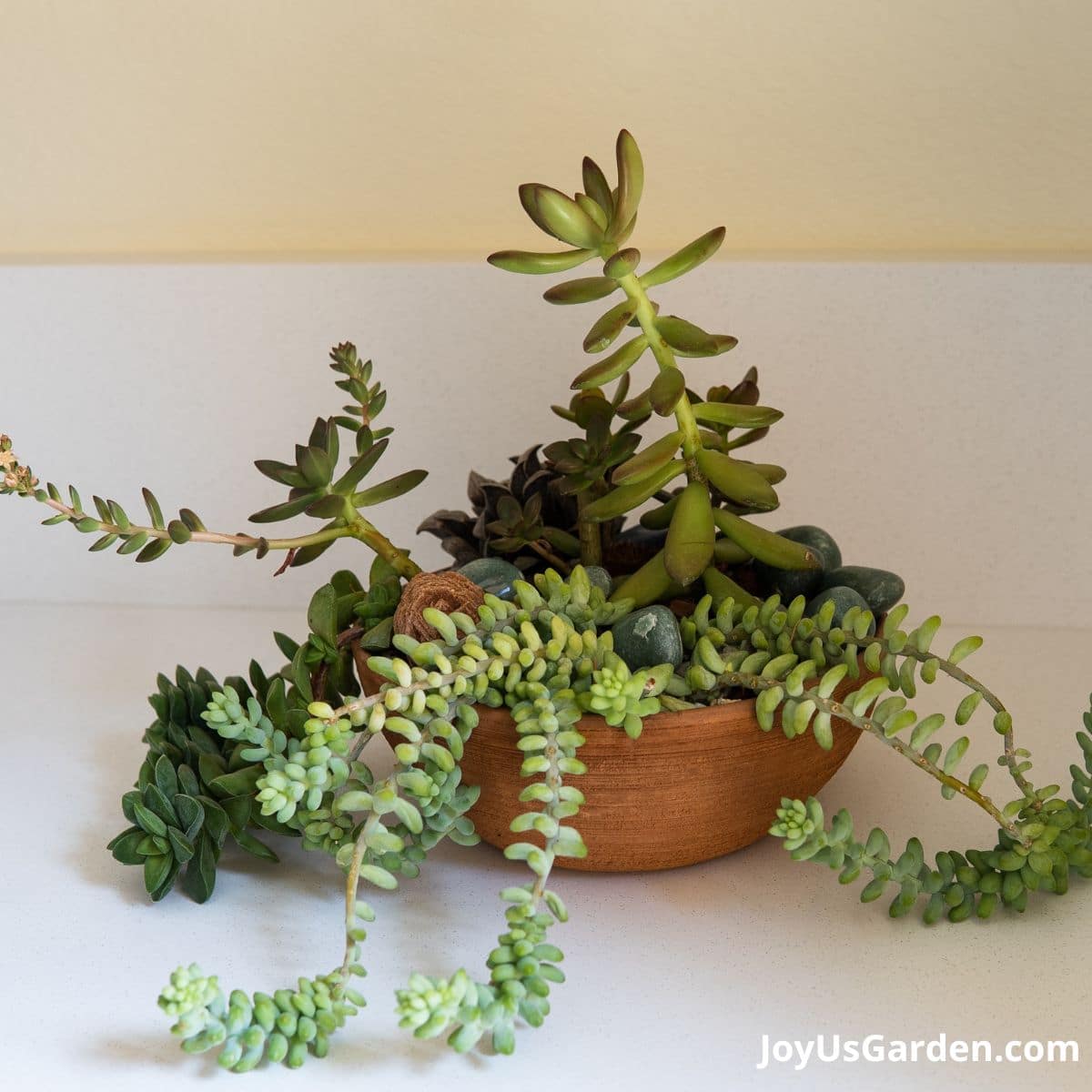
Watering Succulents When on Vacation
I used to travel a lot. Unless you’re gone for over 3 weeks, your succulents should be fine. Most people turn down their air conditioning and heat when away lessening the chance of them going dry for an extended period.
Watering Small Succulents (2-4″ pot size)
It’s common to see succulents sold in small pots. Because the soil mass is small, it’ll dry out faster. Water these more often. I like to use a squeeze bottle or a watering can with a narrow spout.
Here’s a very general rule of thumb:
- In small pots, water every 7 days
- In medium pots, water every 10 days
- In large pots, water every 14 days
Factors To Consider When Watering Succulents
- The drier your environment, the more often you’ll water.
- The hotter, the more often.
- The more sun, the more often (just know that fleshy succulents will burn in hot, direct sun).
- The smaller the pot size, the more often. This applies to low bowls and dishes too.
- The more humid your environment is, the less often you’ll water.
- The more fog you have, the less often.
- In winter when it’s a darker, cooler time, less often.
- The denser the soil mix, the less often (because it holds more water).
- If the bottom of the pot doesn’t have a drainage hole (or drainage holes), less often. Water cautiously. Here’s how to plant & water succulents in pots with no drain holes. Planting succulents in terrariums or low glass dishes is common. Again, mind the amount and frequency of the watering.
- Consider the pot type. Unglazed clay and terra cotta are porous so the roots get air. The mix may dry out more often. You may have to water succulents in plastic and glazed pots (like ceramics) which aren’t porous a bit less often.
- I’ve found that succulent plants with thin stems and smaller leaves, such as String Of Pearls, String Of Bananas, and Ruby Necklace need watering more often than succulents with thick stems and leaves such as Echvererias, Paddle Plants, Aloe Vera, etc. They can go longer without water.
- As you see, the amount of water and the water frequency has many variables. You’ll need to adjust for the season and as your succulents grow.
This post and video tell you how to Plant And Water Succulents In Pots With No Drainage Holes.
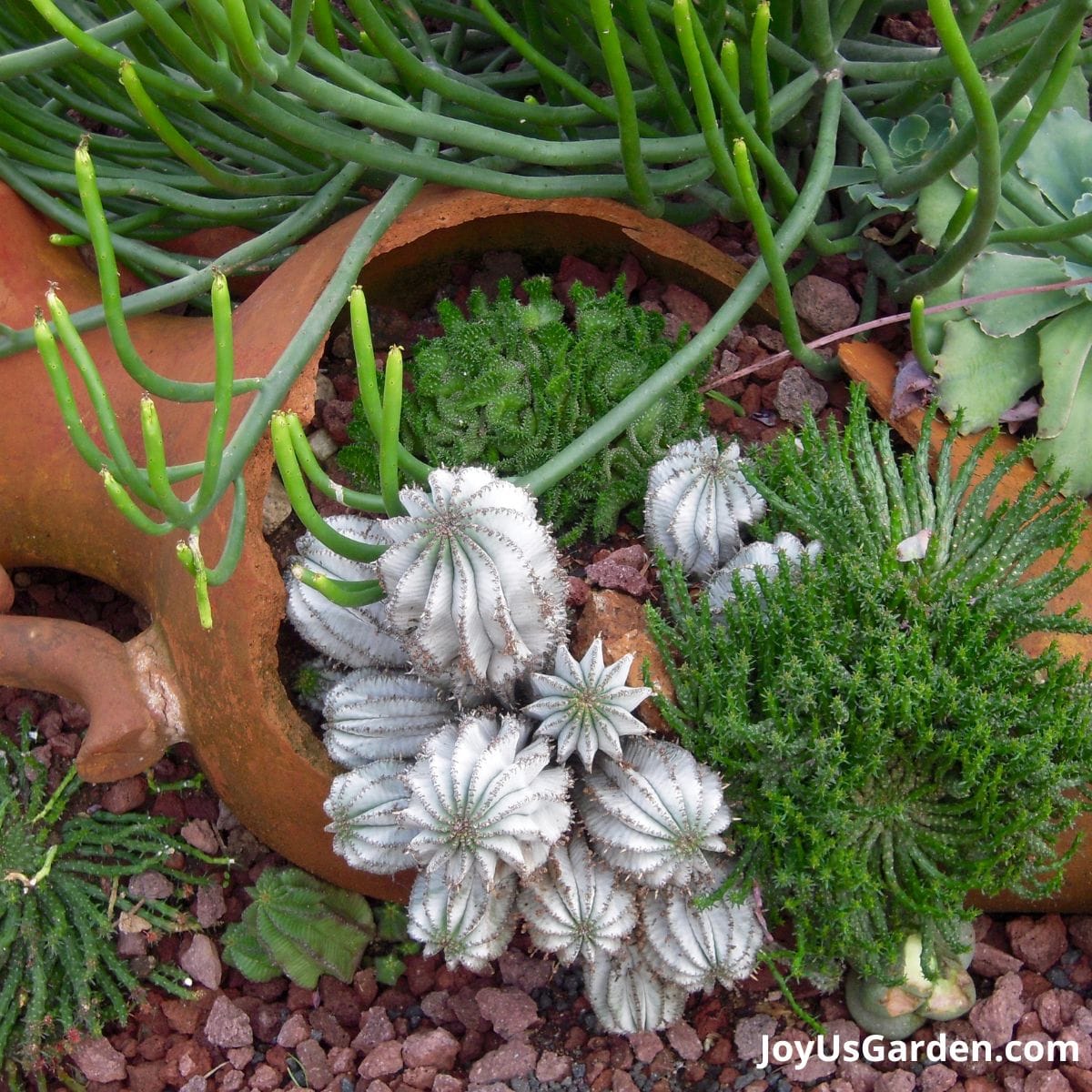
General Tips For Watering Succulents
There are no special watering techniques when it comes to succulents. The only thing I’d say is to water the soil and not the foliage.
I’ve never used distilled water when watering my succulents. Other plants are susceptible to salts and minerals causing the leaf tips to burn, but I haven’t found that true when it comes to the fleshies.
Don’t “splash and go”. Succulents would prefer to get a thorough watering less often than a little bit of water more often.
I water all my plants, including succulents, with room-temperature water.
Don’t water your succulents too often. Frequent watering can lead to root rot. They store water in their fleshy leaves, stems, and roots.
Hand in hand with the above, don’t let the pots sit in a saucer full of water. It’ll keep the soil mix way too wet.
If you live in a rainy climate, you may need to grow your succulents under the cover of something like a porch. They “mush out” fast!
If you have a watering system, succulents will do much better if they’re on drip irrigation rather than spray.
Follow the weather and water accordingly. For instance, here in Tucson, our winter 2 years ago was warm and sunny so I watered my succulents more often. Last winter was much cooler so I watered less often.
Succulents don’t like a heavy or dense soil mix. Good drainage is important so It’s best to plant succulents in a light mix and well-aerated soil to prevent over-watering.
How Often Should You Water Succulents Video Guide
How To Water Succulents FAQs
I don’t water them for 5-7 days after repotting. Then, I give them a thorough watering and water them again when dry. I like to let them settle in dry and then resume watering as normal.
The best way is to water the soil all away around the root ball. I avoid spraying the leaves when watering (especially indoors) because succulents aren’t fond of wet foliage.
I’ve been watering succulents for over 25 years now and have always watered them from the top. When you have a bigger pot and are watering from the bottom, the water may not reach the roots further up.
Your succulent should have plump leaves. If it’s been under-watered, it’ll look shriveled and the leaves could look smaller or stunted due to the shriveling. They could also turn a yellowish color.
Succulents like dry conditions and will let you know if they’re getting too much water. The leaves will look and feel mushy and may also be yellow, brown, or black. If unsure, use a moisture meter to determine if the soil is staying too wet. This is where an aerated soil mix with excellent drainage comes into play.
A small succulent doesn’t need as much water as a larger succulent. You’ll want to water a succulent in a 2 or 3″ pot more often than one in a 6″ pot. Water it when dry, making sure all the water drains out, and repeat.
I always water with a can, especially indoors. I try to avoid spraying them. Too much moisture on the succulent foliage leads to mildew.
It could if you catch it early on. The best thing is to take it out of the wet soil and repot it into fresh soil, let it dry out, and then resume watering. Succulents prefer dry soil over wet soil.
You definitely want to water them less. For instance, if in the summer months, you’re watering every 2 weeks, you’ll need to cut back to every 3 or 4 weeks in the winter months.
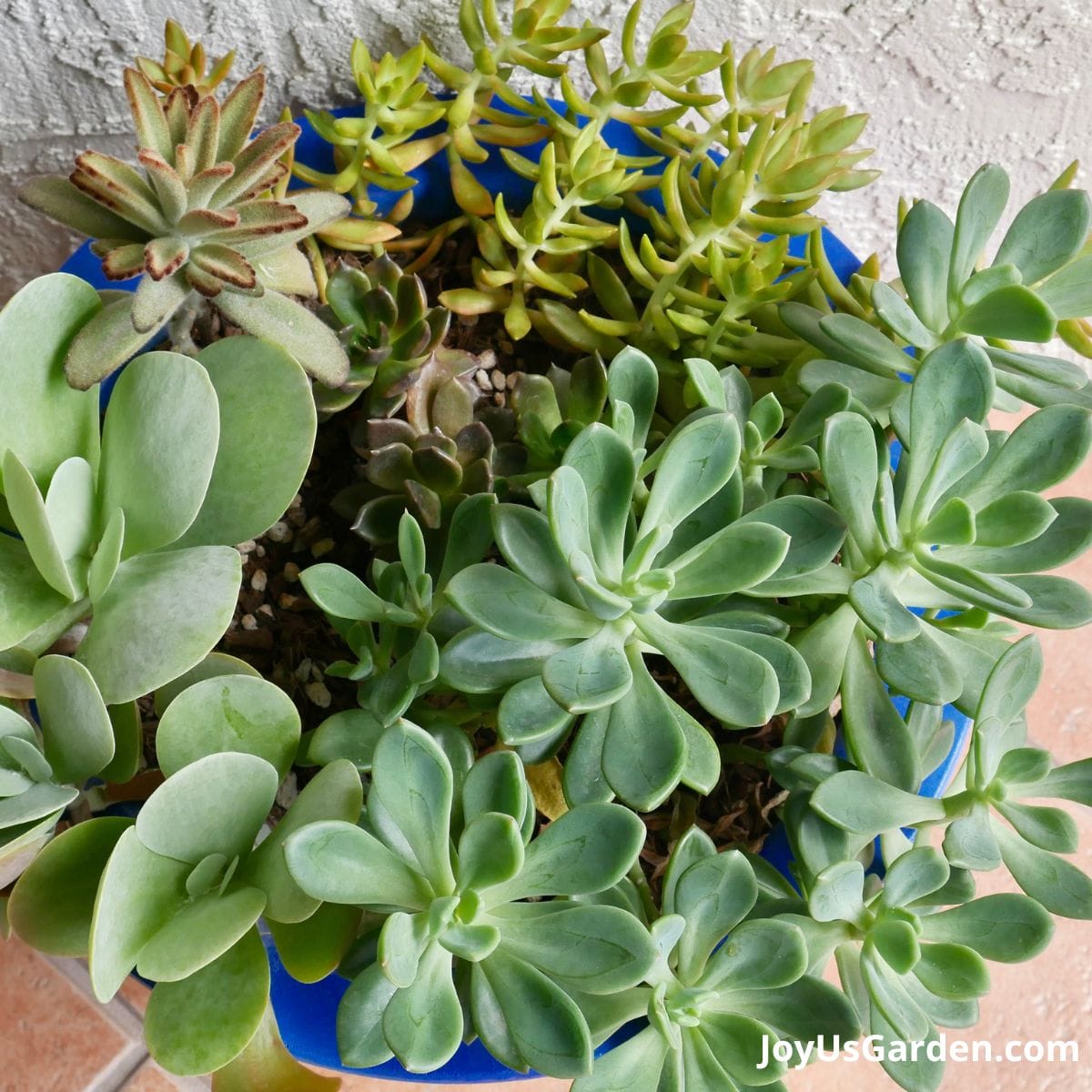
Conclusion: So, as you see there are lots of variables involved when it comes to watering succulents. The conditions they’re growing in such as how humid, how hot or cold, the pot size, the composition of the soil mix, the intensity of the sun, whether they’re inside or out, or in pots or in the ground, all come into play.
I hope this helps and gives you some things to think about. Just remember, when it comes to watering succulents, it’s best to go easy on the liquid love!
Happy gardening,


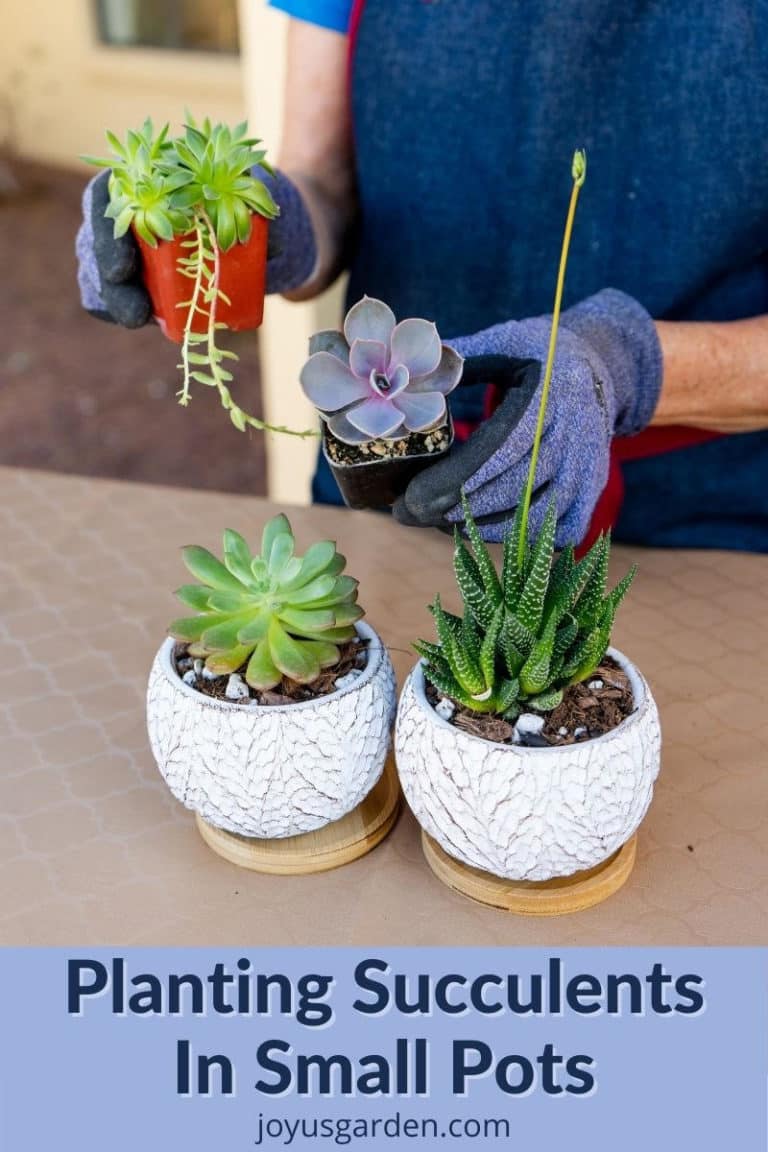
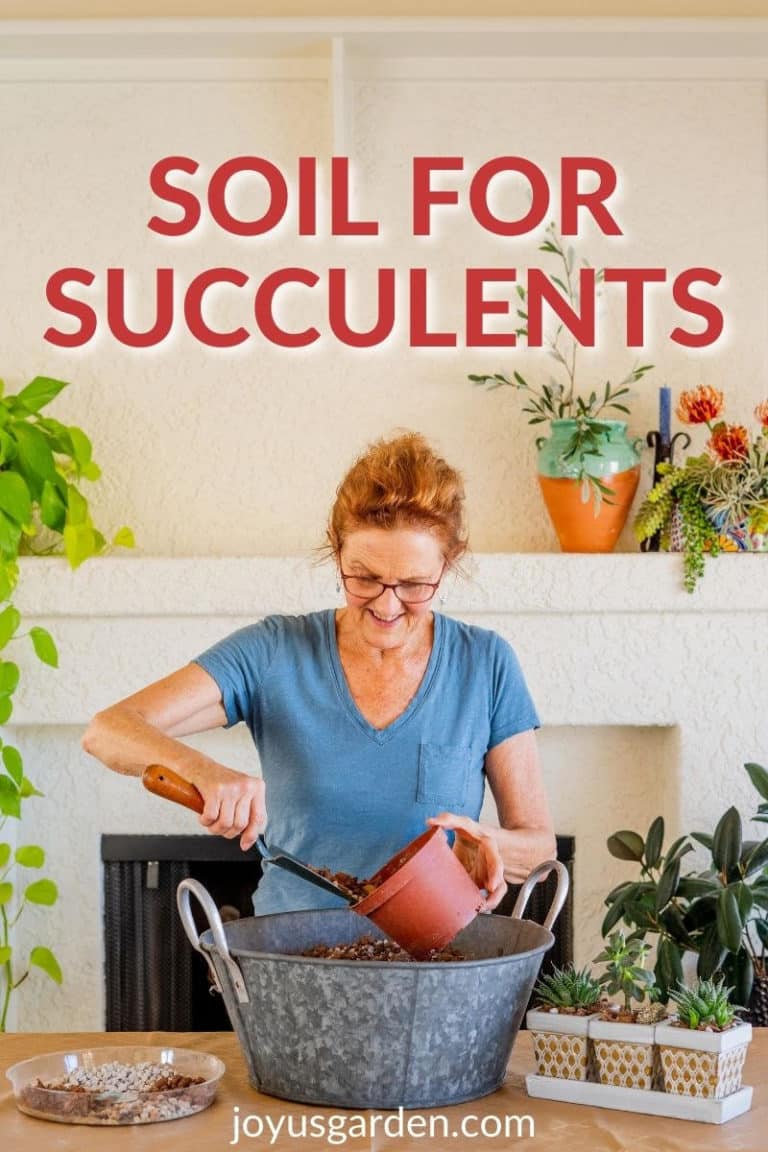
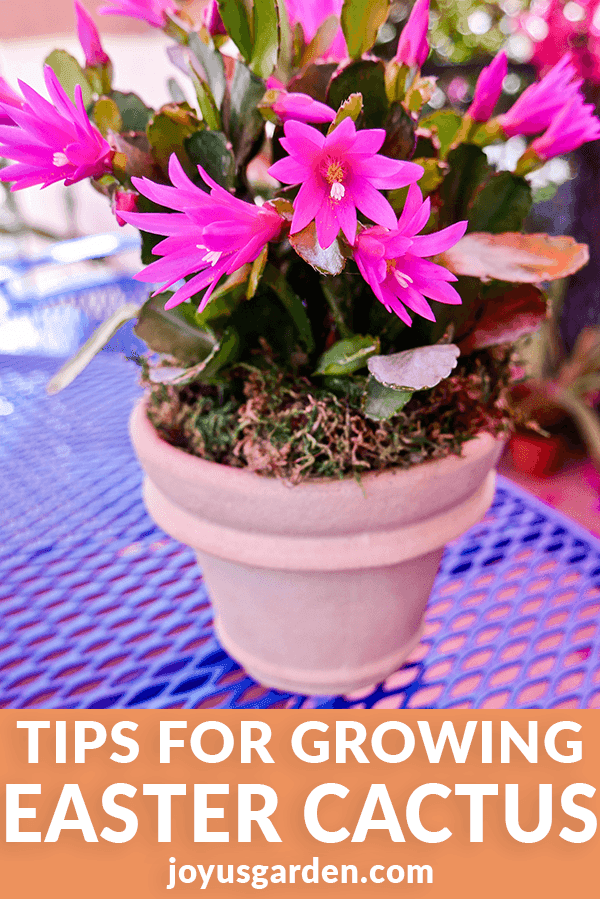
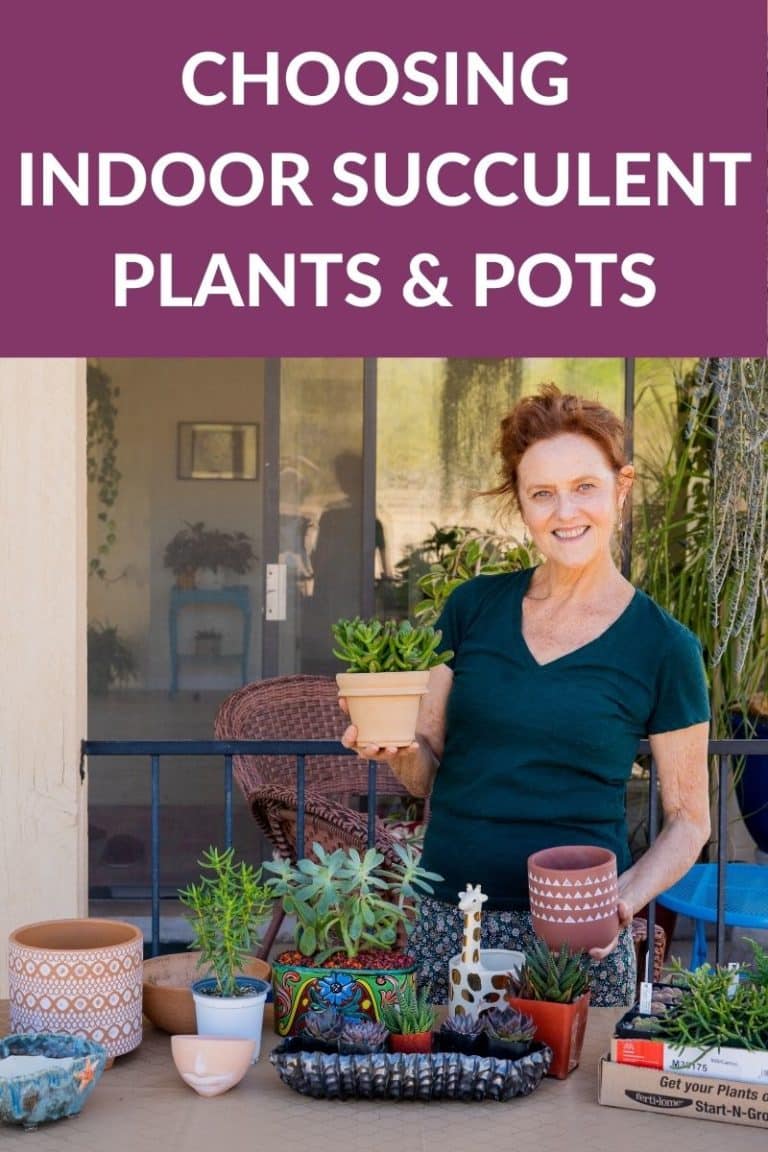
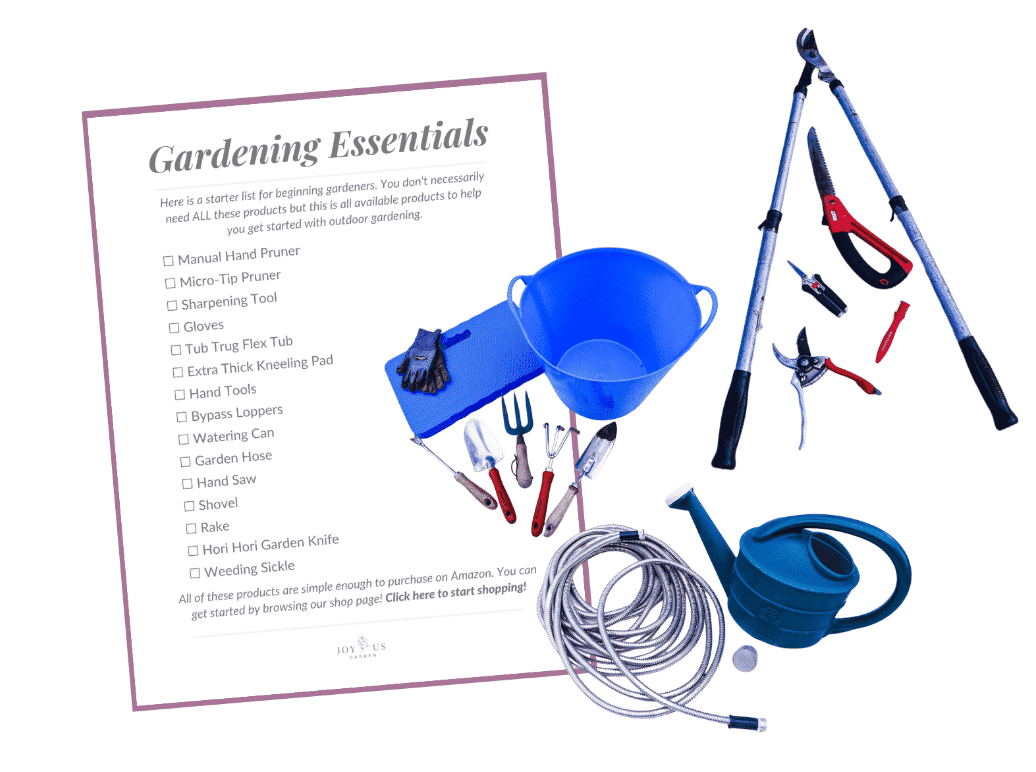
Hello Nell…great blog post. I have to be more careful with my succulents…I killed my pony tail palm. Wish you are doing well
Hello! Do you have any tips on bottom watering a SOB? I know they don’t like getting their leaves wet. Thank you.